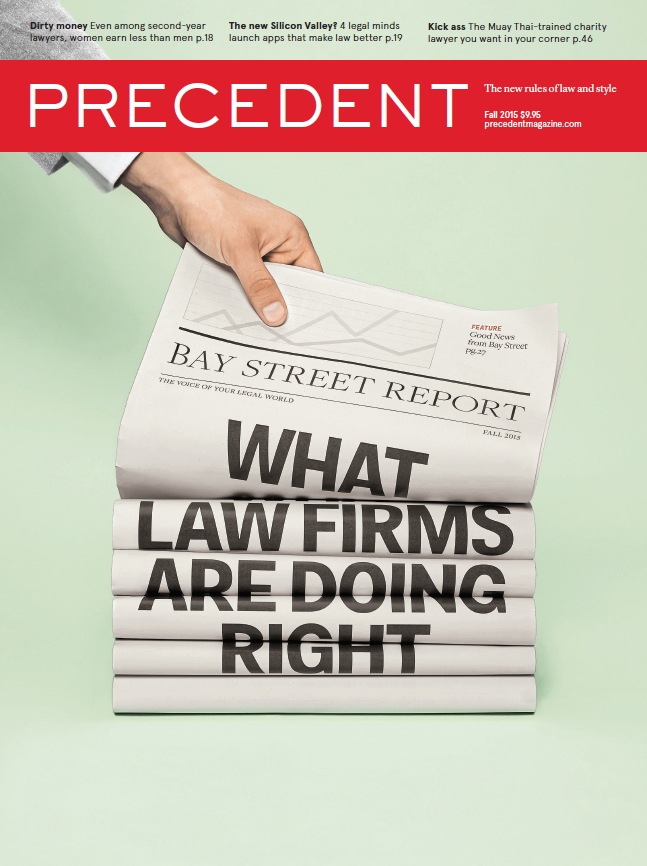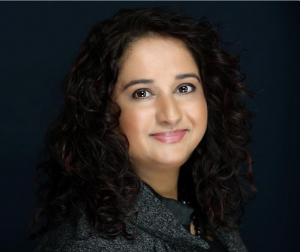On May 1, 2015, I woke up early, my heart racing. Ontario lawyers had just spent more than two weeks voting in the bencher election and the results were about to be announced. After four months of campaigning I had to know: had I been elected a bencher or not?
I tried not to get my hopes up — after all, it’s difficult for new candidates to get elected, especially racialized lawyers from the public sector.
Then came an email from the Law Society of Upper Canada with the results. Every four years, 20 lawyers are elected from within Toronto, and 20 from elsewhere in the province. I was not listed in the Toronto 20. Officially not a bencher.
I was sad, but I didn’t fret for long. I was too proud of my campaign — our campaign, I should say.
For the first time, two bencher hopefuls ran in tandem, buying ads together and cross-pollinating with each other’s networks. Credit for the idea goes to my running-mate Janet Leiper, a defence lawyer, Toronto’s former integrity commissioner, an incumbent bencher and, more recently, my mentor.
Janet wanted to go beyond the typical framework of mentorship — well beyond meeting for coffee and chatting about career possibilities. She wanted to champion someone she felt would add value and diversity to the bencher group, someone who wouldn’t normally have a strong chance of being elected. She chose me — a relatively unknown South Asian human-rights lawyer working for the province.
By now, the benefits of diversity are well known. Studies show that diverse organizations outperform non-diverse competitors. As author Lauren Rivera noted in the New York Times, “Too much similarity can lead to teams that are overconfident, ignore vital information and make poor (or even unethical) decisions.
”It’s critical that the Law Society reflects the lawyers it governs, as well as the public it serves. (After the last election, in 2011, non-white lawyers made up a disheartening 7.5 percent of Convocation.)
Janet’s plan involved lending her credibility and reputation to me. We attended events as a pair and she sang my praises to her network of prominent members of the legal community. Her plan was to take me with her. And she did.
You see, I was voted number 21 in Toronto. And at the first Convocation of the newly elected benchers, Janet Minor (it’s been a good year for Janets) would revert back to her status as treasurer of the Law Society and the lawyer voted number 21 would bump up to fill the final bencher spot. In other words, I was now a bencher.
On May 28, 2015, I joined the Law Society of Upper Canada as the first South Asian female bencher in its 218-year history. (Plus, Convocation is now more diverse than ever, with 22.5 percent racialized benchers.) I admit the achievement brought a few tears. But the good news doesn’t end there. As they say, a rising tide lifts all boats.
When Janet Leiper was elected in 2011, she earned a respectable 12th-place standing among Toronto candidates. This year? Janet placed second, with support from 33 percent of all voters. Not only did my running-mate’s support help me get elected, but running together served her campaign as well. She benefitted from the added exposure to my network of public-service colleagues and the joint endorsement that we received from the Canadian Hispanic Bar Association.
The lesson of my story is this: if you want something, you can’t just hope it will show up before your eyes. It never will. Janet knew Convocation needed a fresh, diverse voice. And she took action.
So look around your office, your board of directors, your kid’s parent council. Whose voices are missing? If you want them to show up and speak up, then you have to seek them out, champion them and act as their megaphone.

 This story is from our Fall 2015 issue.
This story is from our Fall 2015 issue.
 Isfahan Merali is a bencher in Toronto and tribunal counsel with Ontario’s Consent and Capacity Board, with a focus on administrative and mental health law.
Isfahan Merali is a bencher in Toronto and tribunal counsel with Ontario’s Consent and Capacity Board, with a focus on administrative and mental health law.
Illustration by Yarek Waszul


